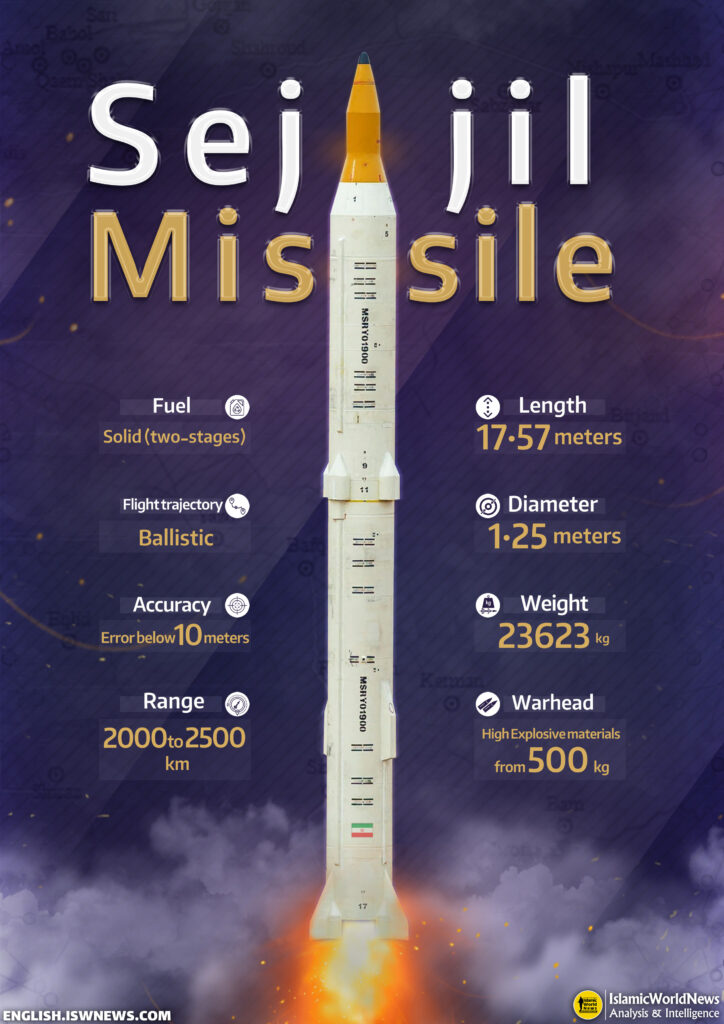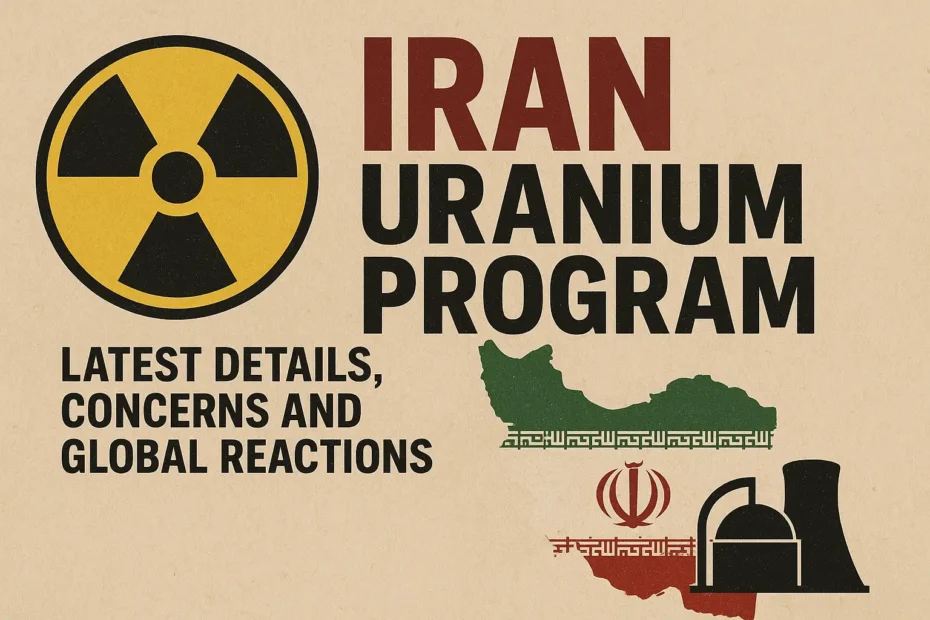The uranium program of Iran is one of the hottest topics in international politics today. Every time you hear news about Iran Israel conflict or global nuclear talks, uranium is always in the center. Many people are confused about what exactly Iran is doing with uranium, how much enriched uranium it has, why Israel is worried, and what the world is doing about it. In this blog we will try to explain the latest Iran uranium details in simple words, but also look at how it connects with the Iran Israel tensions and wider Middle East issues.
What is Uranium and Why it Matters
Uranium is a naturally available element, but when it is enriched it can be used for two things: nuclear energy (electricity production) or nuclear weapons. That is why enrichment level matters. Low enriched uranium (around 3–5%) is used for nuclear power plants, while uranium enriched above 20% is considered sensitive, and near 90% it becomes weapons-grade.
Iran has always said its program is peaceful, meant for energy and medical research. Israel, USA and European countries however believe that Iran could use uranium for making atomic bombs. That is why the Iran uranium program is so controversial.

Iran’s Enriched Uranium Stockpile
The latest Iran uranium details show that the country has built a large stockpile of enriched uranium over the years. After the 2015 nuclear deal (JCPOA), Iran had agreed to limit enrichment to 3.67% and stockpile to just 300 kg. But since USA pulled out of the deal in 2018, Iran has crossed those limits.
Reports say Iran now has thousands of kilograms of enriched uranium, some of it enriched up to 60% purity. This is very close to the 90% weapons-grade level. According to international experts, with this material Iran could potentially build several nuclear bombs if it decided to move in that direction.
Uranium Under Bombed Sites
One of the most shocking Iran uranium updates in 2025 is that a lot of enriched uranium is buried under sites like Natanz, Fordow and Isfahan, which were bombed during recent strikes. Iran officials have said they are still investigating the condition of the uranium stored underground.
This adds more fuel to the Iran Israel conflict. Israel says these hidden uranium stockpiles are proof that Iran is not transparent. Iran says Israel’s attacks are illegal and dangerous because they risk spreading nuclear contamination.
Why Israel is Worried
Israel has always seen Iran’s uranium program as a direct threat. The Israeli leadership says that a nuclear-armed Iran would destroy the balance of power in Middle East. Israel also fears that Iran could give nuclear know-how or dirty bomb material to its allies like Hezbollah or Houthis.
This is why Israel has carried out covert sabotage missions, cyberattacks, and even direct airstrikes on Iran’s nuclear facilities. Every time Iran increases its uranium enrichment, Israel warns that it will not allow Iran to cross the “red line.” This is one of the main reasons why Iran Israel conflict is so dangerous.
The Role of IAEA
The International Atomic Energy Agency (IAEA) is supposed to monitor Iran’s uranium program. After recent talks in Cairo, Iran agreed in principle to allow inspections of all its nuclear sites, including those that were bombed. But Iran also said the inspections would be allowed only under its Supreme National Security Council approval.
Western countries are skeptical. They believe Iran may delay or restrict inspectors. The IAEA has repeatedly said it needs full and unconditional access to check uranium stockpiles and centrifuges. Without it, nobody can confirm what Iran is really doing with uranium.
Snapback Sanctions and NPT Threat
Because Iran has gone far beyond its commitments, the European powers (UK, France, Germany) are considering activating “snapback” sanctions under the 2015 deal. This would bring back all UN sanctions on Iran.
In response, Iran has threatened to leave the Non-Proliferation Treaty (NPT). If that happens, Iran will no longer be bound by rules against making nuclear weapons. For Israel and USA, this would be a nightmare scenario, and could trigger military action.
Regional and Global Fallout
Iran uranium program is not just a local issue. It has regional and global impact:
- Oil Prices: Any escalation affects Gulf oil supplies and increases prices worldwide.
- Regional Security: Gulf countries worry that Israel’s strikes on Iran may spill over into their territories.
- Superpowers: USA is backing Israel, while Russia and China often side with Iran. This makes the uranium issue a global flashpoint.
- Nuclear Proliferation: If Iran crosses the line, other Middle East countries like Saudi Arabia or Turkey may also start their own uranium programs.
Iran’s Argument
Iran insists that its uranium program is legal and peaceful. Tehran says it needs higher enrichment for medical isotopes and advanced fuel. Iran also argues that Israel itself has nuclear weapons but never signed the NPT, so it has no right to lecture others.
Iranian leaders often say the issue is not uranium, but double standards. They accuse the West of protecting Israel’s nuclear arsenal while punishing Iran’s peaceful activities.
Conclusion: The Road Ahead
The Iran uranium details show a very complex and risky picture. With large stockpiles, high enrichment levels, bombed storage sites, and political tensions, the situation is on the edge. For Israel, it is an existential threat. For Iran, it is a matter of sovereignty and national pride. For the world, it is about preventing nuclear war.
The coming months will be decisive. Will Iran allow full IAEA access? Will Israel strike again? Will sanctions push Iran to leave the NPT? These questions will decide the future of Iran uranium program and the stability of Middle East.
One thing is clear: uranium may look like just a metal, but in Iran Israel conflict it has become the most dangerous word in international politics.

Its fantastic as your other content : D, regards for posting. “A great flame follows a little spark.” by Dante Alighieri.
I just couldn’t depart your website prior to suggesting that I extremely enjoyed the standard info a person provide for your visitors? Is going to be back often in order to check up on new posts
I don’t unremarkably comment but I gotta say regards for the post on this perfect one : D.
I just could not depart your site before suggesting that I actually enjoyed the standard info a person provide for your visitors? Is gonna be back often to check up on new posts
Howdy, i read your blog from time to time and i own a similar one and i was just wondering if you get a lot of spam responses? If so how do you reduce it, any plugin or anything you can suggest? I get so much lately it’s driving me mad so any help is very much appreciated.
I just wanted to construct a small remark to appreciate you for those stunning ideas you are giving here. My extensive internet search has at the end of the day been paid with sensible know-how to talk about with my relatives. I would claim that many of us visitors are rather blessed to dwell in a useful network with very many perfect individuals with valuable techniques. I feel extremely blessed to have come across the site and look forward to really more awesome minutes reading here. Thank you once again for all the details.
It’s laborious to search out knowledgeable people on this matter, but you sound like you recognize what you’re talking about! Thanks
Definitely, what a magnificent site and revealing posts, I will bookmark your blog.All the Best!
I’m really enjoying the theme/design of your blog. Do you ever run into any internet browser compatibility problems? A couple of my blog audience have complained about my site not working correctly in Explorer but looks great in Firefox. Do you have any recommendations to help fix this problem?
Thank you for your sharing. I am worried that I lack creative ideas. It is your article that makes me full of hope. Thank you. But, I have a question, can you help me?
Yay google is my queen aided me to find this outstanding internet site! .
I really appreciate how you’ve broken down this complex topic into digestible parts. Your examples were particularly helpful in understanding the nuances. This will definitely help me explain the concept to others.
Your article helped me a lot, is there any more related content? Thanks!
I don’t think the title of your article matches the content lol. Just kidding, mainly because I had some doubts after reading the article.
Your point of view caught my eye and was very interesting. Thanks. I have a question for you.
I don’t think the title of your article matches the content lol. Just kidding, mainly because I had some doubts after reading the article.
Thanks for sharing. I read many of your blog posts, cool, your blog is very good.